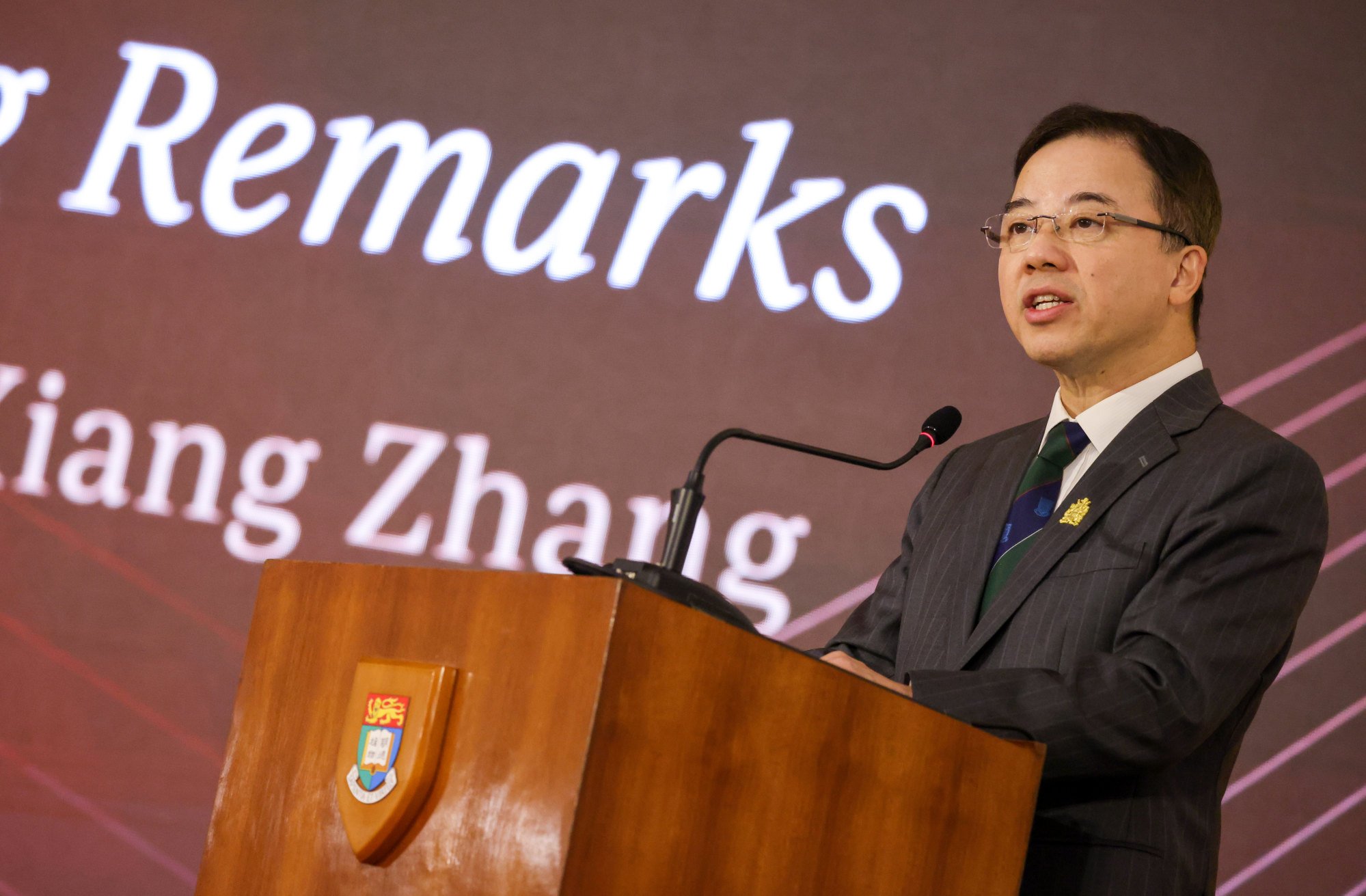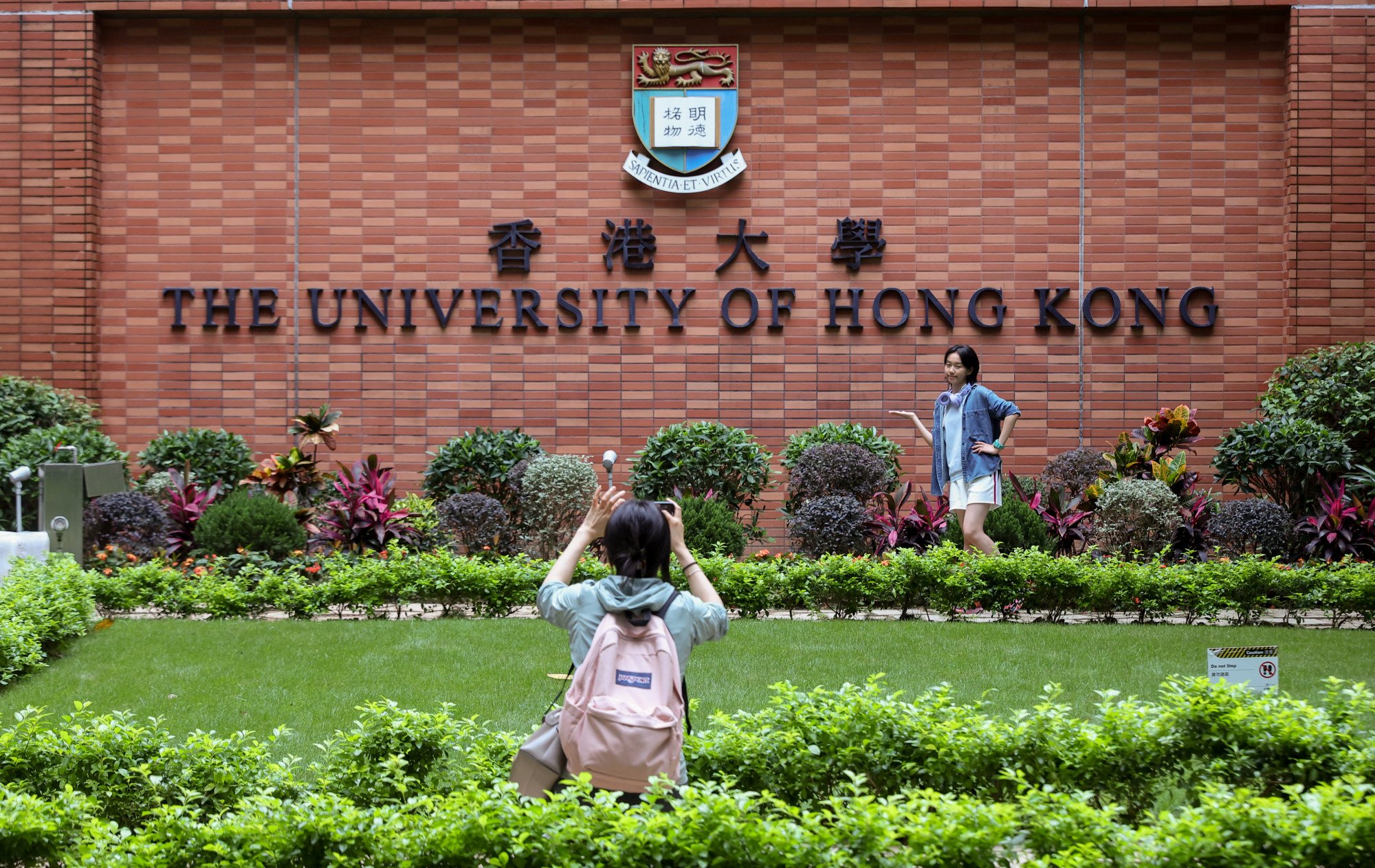
University of Hong Kong infighting escalates as council, head take aim at each other
- HKU council says president was not kept in dark about several interim appointments; he then issues statement to ‘set record straight’
Infighting among the leadership at Hong Kong’s oldest university has escalated, with the governing council issuing an open letter dismissing claims by the president that he was kept in the dark about a recent reshuffle of senior management, prompting a late-night response from him.
The open letter, sent to all University of Hong Kong (HKU) staff, students and alumni on Monday afternoon, emphasised that it was legal for the council to appoint members of the top management team.
But HKU president and vice-chancellor Xiang Zhang hit back late on Monday.
“Today, the university council issued an open letter, despite me and many of the council members objecting to it. It [the letter] involves untrue content and unfair criticisms. I am thus forced to respond to set the record straight,” he said.
Zhang said the council’s claims that he knew about the reshuffle were completely untrue, as the agenda for the meeting in question did not mention any appointments of vice-presidents.

The Post exclusively reported earlier on Monday that the city’s leader had stepped in to help end the infighting by meeting Zhang and council chairwoman Priscilla Wong Pui-sze separately “more than once” in the past few weeks.
A row over the reshuffle broke out after the council endorsed the appointment of several interim vice-president positions in May, but Zhang said a few days later that he had not been told about the matter and would seek legal advice.
The council’s open letter addressed these assertions.
“Recently, the president claimed in an email to all faculty and students that he and other council members were completely unaware of these appointments. However, this statement is untrue, as the matter had been communicated to him for some time,” it said.
The letter added that Zhang had asked for six vice-president positions to be added last year.
It said he also sent a representative to attend a human resources policy committee meeting in April to discuss the matter and the individual did not raise objections to the conclusion that the appointment of vice-presidents was an urgent matter.
The letter said discussions on vice-president vacancies were on the agenda for a council meeting on May 28, where Zhang had presented different legal opinions, which showed that he had known about it in advance.
The council also denied in the open letter that the reshuffle was related to “personal animosity, as some rumours suggest”, but said it “addresses governance concerns”.
It said the university was publicly funded and had to have “robust management to ensure optimal utilisation of public resources”.
The council added the appointments were made collectively “under unavoidable circumstances and for the betterment of the university”.
It stressed that only four of seven vice-president posts were filled. Since Zhang became the head in 2018, several vice-president posts had been left unfilled.
“Since the president assumed office in 2018, several vice-president positions at [the university] have remained vacant for extended periods, resulting in a lack of a complete management team and frequent management issues,” the letter said.
“Failure to strengthen the management team and improve the governance structure could exacerbate management errors.”
The council said three vice-president posts had been left unfilled for years. The vice-president (global) post had been vacant for 5½ years, while that of vice-president (institutional advancement) had only been filled temporarily in two of the past seven years, it said.
“Since July 2018, eight vice-presidents have left their posts, with at least five resigning,” the letter said.
It added that an interim vice-president had served for 5½ years and, at one point, held three positions simultaneously, disrupting the internal position balance.

The letter said frequent personnel changes for the post of the vice-president responsible for finance and construction had delayed university development projects. Five changes had occurred since 2019.
The council also said Zhang had only attended one academic board meeting since he took office, rather than the required three to four a year. It also said the vice-chancellor had only shown up at a third of finance committee meetings.
It also questioned why the vice-chancellor’s office had to expand to more than 60 people while Zhang implemented reforms to reduce administrative expenses.
The letter also discounted speculations that the council’s move had something to do with “personal grudges” with Zhang.
“There are no personal grudges between the council and the president, and the president is highly respected for his academic accomplishments,” the council said, while stressing that it had hoped to be able to resolve the management issues through internal procedures.
But in his Monday night statement, Zhang said he had been working hard to fill the vice-president vacancies and submitted names of candidates, but the council’s chair had refused to include his recommendations in the agenda.
The president also said he had reported regularly to the council about the university’s development and his works.
Former education minister Fanny Law Fan Chiu-fun, who earlier signed an open letter to urge Hong Kong’s leader to step in, said the University of Hong Kong Ordinance did not give the council “unfettered power”.
“Even if council has the ultimate authority to appoint, this provision in the ordinance is meant to provide checks and balances on the management,” she said.
“It should not be interpreted as the council having unfettered power to appoint whoever it wants.
“There has to be a due process to assess the justification for the proposed division of responsibilities and the suitability of the candidates proposed.”
She called for an “open, fair and transparent” process with stakeholders engaged for good governance practice to be followed.
Council member and ex-legislator Abraham Razack shared similar views and said he had reservations about issuing a letter in the body’s name without proper deliberation of all the allegations in a full meeting.
“It is only fair that concerned stakeholders can be given a chance to explain or defend themselves,” he said.
Razack said he did not know how many other council members, if any, supported his position but he was given to understand that the letter would be issued if the consent of at least half was secured.
“I only want to say that I do not belong to that part of the council members. And perhaps those who supported the issuing of the letter should have their names listed out in the letter instead,” he said.
Tension between Zhang and the council arose as early as last year when he was accused of misconduct and mismanagement.
But an internal panel set up by the council to investigate the allegations cleared Zhang of any wrongdoing in April.
The Post has contacted Lee’s office and HKU for comment.


